Confederate Truths: Documents of the Confederate & Neo-Confederate Tradition from 1787 to the Present.
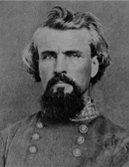

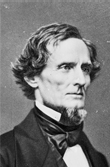
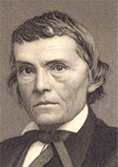

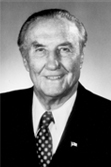
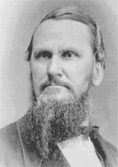
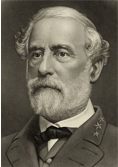
Gov. John B. Gordon of Georgia and head of the United Confederate Veterans explains the meaning of the Confederacy to be opposition to the Farmer's Alliance to preserve white supremacy
Gov. John B. Gordon of Georgia and head of the United Confederate Veterans explains the meaning of the Confederacy to be opposition to the Farmer's Alliance to preserve white supremacy
From The Atlanta Constitution, September 3, 1890, page 3. Georgia Governor John B. Gordon is facing opposition by the Farmer's Alliance. What is of interest is how the Confederacy and white supremacy is invoked to squelch dissidence and the attempted development of competing political organizations in Georgia.
The following has extracts from the published speech:
GOV. GORDON'S SPEECH
AT EATONTON CONCERING HIS OPPOSITION TO THE SUBTREASURY
He Explains His Position and His Grounds for Opposition to the Measure—His Friendship to the Farmers' Movement, Etc., Etc.
… Hence, I spoke, not defiantly, as I have been persistently and falsely represented, but with a heart full of devotion to your cause, as my life has been full of labor for your principles. I spoke for peace and brotherhood, for democratic unity and white supremacy in Georgia. I spoke for the best interests of the alliance brotherhood, and I left that hall with the calm reflection that sooner or later the wisdom of the liberal policy which I have advocated would be abundantly vindicated. …
… But far more important than any personal considerations—do you not plainly see that you can never win a national victory until you inscribe on your banners only those living principles for which Virginia and Georgia and Texas alliancemen can all stand, and for which the friends of reform everywhere can unite? Is there any answer to this proposition? Does not every intelligent, fair-minded allianceman in Georgia see it?
Oh! My brother democrats in and out of the alliance, you who realize that the integrity of your party is essential to the continued supremacy of the white race in Georgia; you who realize that white supremacy is essential to the best interests of both races, and to the security of your property and the safety of your homes; I appeal to you by these, and by your love of law and order, and by your devotion to the principles that have protected you in the past, and must preserve you in the future, by these and by all else that makes life sweet, and this south-land a paradise, I appeal to you to hold steadfastly to our time-honored faiths, and by their saving power rescue this commonwealth from the evils of democratic dissention. …
… If in war or in peace I have failed in my duty to this people or to my country; if from April '61 to April '65 I lingered in the rear while your brave sons went to the front; if I sought places of safety or cowered under cover while they trod fearlessly the fields of blood; if after the war, for one day or for one hour, I deserted the south while she agonized on the cross if reconstruction; if in the senate or as governor I have perverted these high trusts to personal ends; if anywhere and for one moment of time one throb of my heart has been untrue to this people; then let the indictment be made and the witnesses summoned in open court; and if in aught I have offended I will acknowledge the justice of the stroke. But do not, I pray you, for your own sake, at the bidding of any set of men, seek to justify my execution on the untenable and false ground that I am not the friend of the Farmers' Alliance. That will not do, my countrymen. The proof is too overwhelming and crushing that such a charge is unjustifiably false. …
…And now, my fellow-countrymen, I have delivered my message of peace and my appeal for harmony. If my defeat is to be compassed by the programme discussed, I should feel that the blow had been struck in the house of my friends—struck by the very men to whose rights and interests so large a portion of my public life has been devoted. The loss of the office would not be the source of my deepest regret; for you are my witnesses that I could have secured it by an almost unanimous vote.
The keenest pang would be the consciousness that among those who dealt the blow were my confederate comrades in the alliance brotherhood acting under the leadership of men who never shared with them the dread fortunes of war. I refuse to believe that these brave veterans—the Old Guard of the confederate army and of southern honor, than whom the world contains no grander men—will, on such a pretext, repudiate their pledges to their constituents, or bring dissension into democratic ranks, which may involve the future welfare of this great commonwealth.